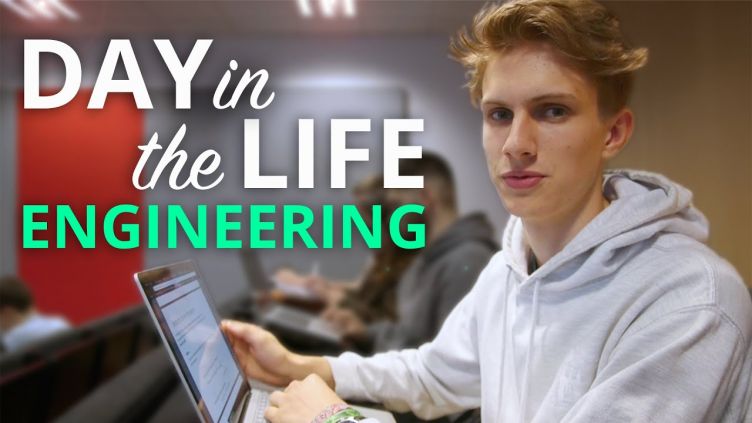A day in the life of a EEE Student

Why did you choose to study at EEE and at Sheffield?
"I chose to study EEE because I’ve always been interested how our electronic devices work and how they have been designed. Almost everything we interact with is either based around electronics or has electronic parts within them. I’m a strong believer of opening things up and trying to modify or repair them, however electronics always presented a challenge and I wanted to be able to look at a circuit board or schematic and figure out what each part did. Looking beyond University I was also conscious of career opportunities and there are many different options open to an EEE graduate, in engineering and other sectors."
What do you enjoy most about your degree?
"There has been several group and individual based projects throughout the course, and I have found these to be the most enjoyable part of the degree. I find it interesting to work with others as you get to experience how people approach problems differently and you are able to achieve more as a team than you would individually. I also think that the process of researching and learning about a new problem, using your knowledge and skills to find a solution and finally presenting a prototype or design can be both challenging and rewarding. A good example would be a project where I designed and constructed a VHF synthesizer, through which I broadened my understanding of oscillator circuit design, mathematical modelling, circuit simulation and practised soldering surface mount components."
How did you become involved with the video?
"I was approached to take part in the video through the skateboarding society, as the director was interested in filming some downhill longboarding and I was happy to be involved. We then discussed doing a “day in the life” style video following my day as I attended lectures in the morning and then went out to the peaks to skate in the afternoon. I’d never really done anything like this before and it was fun to get involved with something a bit different."
Where do you see your degree taking you in terms of career? Are you planning to stay in academia or go into industry?
"After University I’m planning on going into industry, as I have always enjoyed the more practical side of electronic engineering and hope to see the results of work I have contributed to in real products and solutions. To gain some experience and help with career choices I took on a summer placement role after my second year, which gave me some insight into what its like to work on a real project within an engineering team. I will also be doing a year long placement after my third year, from which I hope to gain experience on a wider range of projects and work in an industry that I hope to pursue a career in after I finish my degree."
What do you see is EEE's role in the future of technology?
"EEE has a massive role to play in our future technologies. Looking at some current trends today, internet of things, AI, 5G communications, driver-less cars, renewable energy generation and off-grid storage, all these emerging technologies are underpinned by some form of electronic and electrical engineering. Personally, I’m interested in how software is being integrated into more and more systems through electronics, as microprocessors are becoming smaller and cheaper. The result is that these systems become smarter, more adaptable and more efficient.
What advice would you give to students considering taking EEE as a degree?
"Don’t be worried about not having much electronics knowledge/experience going into the course. I didn’t study electronics before University and I found the first year was structured well, starting off with the basics. There’s also lots of hobbyist electronics kits, projects and other resources online which can be a relatively inexpensive and fun way to learn a bit more about EEE. Finally, the practical aspects of EEE can be useful outside of just the labs and projects in university, I’ve been able to fix and make things that I wouldn’t have before."

International undergraduate scholarships
We offer a generous package of financial support for international undergraduate students, including scholarships worth £10,000 towards the annual tuition fee.
Applications are open for existing offer holders for an undergraduate degree programme starting in autumn 2025.

